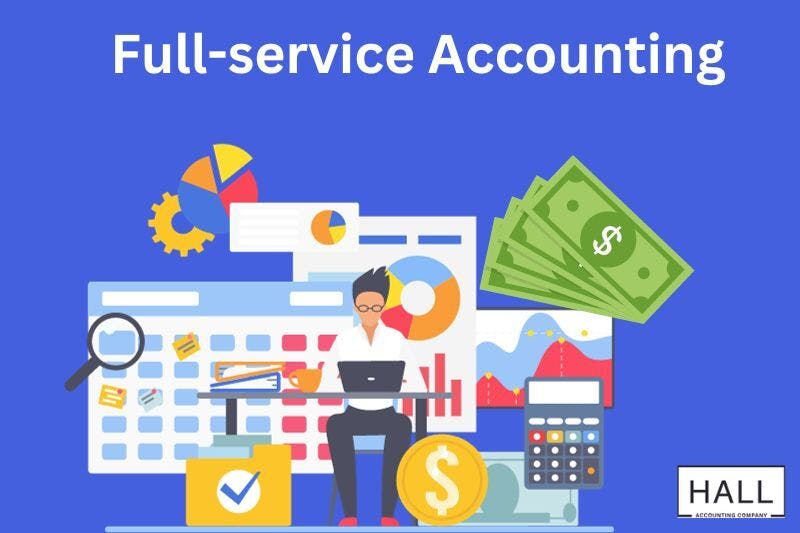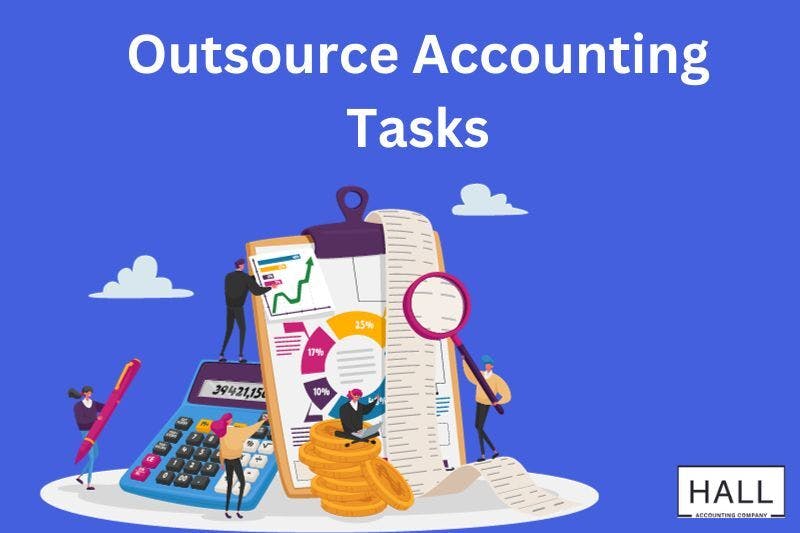
Benjamin Franklin once said: “...in this world, nothing is certain except death and taxes.” Those wise words were uttered by an insightful man, and they still hold true today.
Paying taxes and other business regulations are something that businesses cannot escape. The only thing that can be done is to work within the system to reduce a company’s tax liability. But what is the best approach to take?
Of course, it begins with the daily bookkeeping practices that you follow to get you to that point, and as a small business, these can be a challenge. If you’ve been considering using outsourced accounting services to get your processes on track, then this article is for you.
We look at the cost of using an outsourced accounting firm as well as the different outsourced bookkeeping and tax preparation services.
We aim to prove that a small business can use external bookkeeping services and achieve cost savings at the same time.
Join us, won’t you?
Outsourced bookkeeping services
Firstly, let’s talk about what functions can be outsourced. Is it possible to hand over your entire function, lock-stock, and barrel? Can you give a part of your process to an outsourced accounting team and use an in-house bookkeeper? Can you just hand over tax preparation to an external service provider? Can you employ a part-time CFO?
The short answer to all those questions is yes!
The tricky part is defining what these functions mean to individual businesses, so let’s do this and, at the same time, give you the cost associated with each.
Option 1: Hand over your entire accounting function to a CPA firm

Here, we are talking about finding a reliable and trustworthy business partner who will come on board and act as your accounting department without you employing anyone full-time.
If I had to define what functions these are, they could be divided into 12 categories:
Recording transactions: Documentation of all business transactions, including sales, purchases, payments, and receipts
Bank reconciliation: Compare the business’s bank statements with its records to ensure accuracy and identify any discrepancies.
Managing accounts receivable: Track amounts owed by customers, send invoices, and follow up on outstanding payments to ensure a healthy cash flow.
Managing accounts payable: Track money owed to suppliers or service providers, process payments, and manage due dates to avoid late payments.
Payroll processing: Calculate and distribute employee wages, withhold the correct taxes, and ensure compliance with labor laws.
Financial Reporting: Prepare monthly financial reports, including profit and loss statements, balance sheets, and cash flow statements, to understand the business’s financial position.
Budget Review: Compare actual income and expenses against the budgeted figures to monitor financial performance and make necessary adjustments.
Inventory Management: If applicable, track inventory levels, value, and the cost of goods sold to manage stock effectively.
Tax Preparation: Prepare for tax obligations by setting aside funds for tax payments and organizing relevant financial documents.
Expense tracking and analysis: Categorize and review expenses to identify cost-saving opportunities and ensure expenses align with business goals.
Maintaining financial records: Keep all financial records organized and up-to-date for easy access and reference, which is crucial for audits and financial analysis.
Cash flow management: Monitor and manage the cash flow to ensure the business has enough cash to cover its obligations.
Outsourcing accounting services that require full-scale management of your accounting function will depend on a few factors, such as:
Number of transactions generated monthly
Number of employees
Complexity of business transactions
Number of invoices processed monthly
Whether inventory management is involved, since this is considered an advanced accounting function
Cost of handing over your entire accounting function
The cost of outsourcing can be hard to define because the requirements of every small business are different, and the fee structures also vary from accounting firm to accounting firm.
You will be looking at between $30,000 - $45,00 a year for outsourced services vs. $60,833 - $108, 000 per year for an in-house accountant. [1]
We have a cost calculator we offer potential customers. It will give you a good idea of what it will cost to use our services.
Option 2: Hand over part of your accounting function to a CPA firm
Popular accounting functions that small businesses outsource are:

Recording Transactions
Administrative tasks can cut into the time you have to run your business as a small business owner. Even if you have an in-house bookkeeper, the value they could add to your business is reduced when they are snowed under with manual data entry.
Outsourcing accounting services gives you not only the benefit of getting rid of time-consuming tasks but also allows you to benefit from savvy accounting technology used by an accounting firm - and the best part is you don’t have to incur the cost of using this technology in your business.
Tax Preparation
A qualified CPA will provide you with all the strategies you can use to reduce your tax liability and they will ensure you are kept up-to-date with the latest legislation. Just ridding yourself of the effort and mental strain of keeping up with tax requirements and having someone in your corner who tells you exactly what you should do, is worth the cost of outsourcing your taxes to a service provider.
Expense Tracking & Analysis
From accurately recording expenses to comparing actual expenses with budgeted amounts and cost reduction strategies, handing over expense management to an accounting firm is a smart idea. Expense tracking is a difficult area to manage for small businesses that don’t have processes in place for tracking even small cash expenses. That won’t happen when a CPA takes control of this function and begins work on streamlining your expenses. Ultimately, your expenses impact your cash flow and need to be under tight control.
Cost of handing over individual accounting tasks
The fee structure for this kind of work is likely to be hourly, bundled services, or on retainer.
Hourly | $100 - $500 an hour, with off-shore accounting services costing less at $30-$100 |
Bundled services | Based on a package of hours, or tasks. Can cost between $1000-$3000 a month. E.g. 15 hours a month for recording transactions |
Monthly retainer | Ranges from $300 to $3,000 a month |
As you can see, the costs vary a lot and therefore it’s best to make an appointment with the accounting firm of your choice to discuss your exact needs. Most initial consultations are free and are capped at 30 minutes, but this is over enough time for an assessment of your needs.
Option 3: Employ a part-time CFO

A qualified full-time CFO can command an annual salary of up to $180,000. That might be quite a chunk out of your revenue for the year.
The more cost-effective approach to getting the expertise is a part-time CFO. If you’re a start-up or small business entering the growth phase, you could really benefit from having a CFO to play a strategic leadership role in your organization.
A fractional CFO will bring the following skills to your organization:
Financial Strategy Development: A CFO develops and oversees the financial strategy of the business, aligning it with the company's overall goals and objectives.
Budgeting and Forecasting: They are responsible for budget preparation, management, and forecasting future financial needs. This includes analyzing financial trends and making predictions about future financial scenarios.
Financial Reporting and Analysis: The CFO ensures accurate financial reporting and conducts in-depth financial analysis to inform business decisions.
Cash Flow Management: Managing the company's cash flow is a critical function. This involves monitoring and analyzing the inflows and outflows of cash and ensuring the business has sufficient liquidity.
Investment and Funding Decisions: They evaluate investment opportunities and manage funding initiatives, including seeking investors, managing relationships with banks, and exploring other financing options.Tax Planning and Compliance: The CFO is responsible for tax planning and ensuring that the company complies with all tax laws and regulations.
Strategic Business Planning: They play a key role in strategic planning, providing insights and financial advice to shape the business's strategic direction.
Technology and Systems Oversight: They often oversee the implementation and management of financial systems and technology to enhance efficiency and accuracy in financial operations.
Cost of a part-time CFO
The cost is about $3,000 to $10,000 monthly, with retainers ranging between $5,000 to $7,500.
If it’s per hour, the average base salary of an outsourced CFO is around $65.00.
In Summary
There are many forward-thinking solutions that exist for small businesses to get the expertise and support of a qualified accountant without the costs associated with a full-time employee.
Other small businesses that have taken the risk of outsourcing their accounting function have found that it wasn’t as difficult as they first thought. You could say the biggest obstacles to getting around are the idea that it will cost an arm and a leg and that traditional ways of getting your accounting tasks done are the best.
My team and I are ready to help you with any queries you may have and to work out a package that will work for you. We have experience working with varied industries in Dallas, Texas and the surrounding areas, and our passion is to let you do what you love while we ‘do’ numbers. This way, everyone thrives.
Give us a call today.
Article Resources: